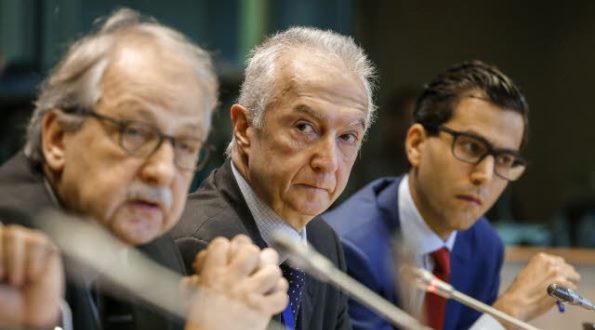BECOME A MEMBER
>JOIN
European Parliament Debates on Counter-Terrorism, De-Radicalisation and Foreign Fighters

On 27 January, the European Parliament’s Committee on Civil Liberties, Justice and Home Affairs held a debate on Counter-Terrorism, Radicalization and Foreign Fighters as a follow-up to the events in Paris on 7 January 2015 and in the run-up to the informal EU Council Meetings of Ministers of Justice and Home Affairs on 29/30 January in Riga and the European Council on 12 February.
Dimitris Avramopoulos, Commissioner for Migration, Home Affairs and Citizenship as well as Gilles de Kerchove, EU Counter-Terrorism Coordinator have been invited to take part in this exchange of views. Also, Mr. Omar Ramadan, Head of the Radicalization Awareness Network (RAN) gave a presentation on the best practices and lessons learned from national/local initiatives in preventing and countering radicalization, for example on addressing radicalization in prisons or on exit strategies. Mr. Morten Kjaerum, Director of the EU Fundamental Rights Agency (FRA) as well as Mr. Giovanni Buttarelli, European Data Protection Supervisor (EDPS) gave presentations on the fundamental rights and data protection aspects of counter-terrorism measures.
In an interview with Associated Press (AP), Gilles de Kerchove called for countries to rehabilitate rather than punish returning jihadis with no blood on their hands, saying that some prisons have become "incubators of radicalization." He also said that "if we can avoid prison, let's avoid prison", and looked positively on a program for returnees in Aarhus, Denmark's second largest city, that aims to rehabilitate returning Danish IS fighters and reintegrate them into society.
According to Swedish terrorism expert Magnus Ranstorp, the program "is in no way a reward, a second chance on a silver plate. It is about protecting society, and avoid having people running around with a knife or an ax." "Many countries rely on repression but punitive methods are a recipe to create resentment toward the society," Ranstorp said.
Associated Press reports that, although it would remain a challenge to be sure when and if returnees are fully de-radicalized, De Kerchove said it was "probably something achievable."
Photo courtesy of European Union 2015 - EP.

